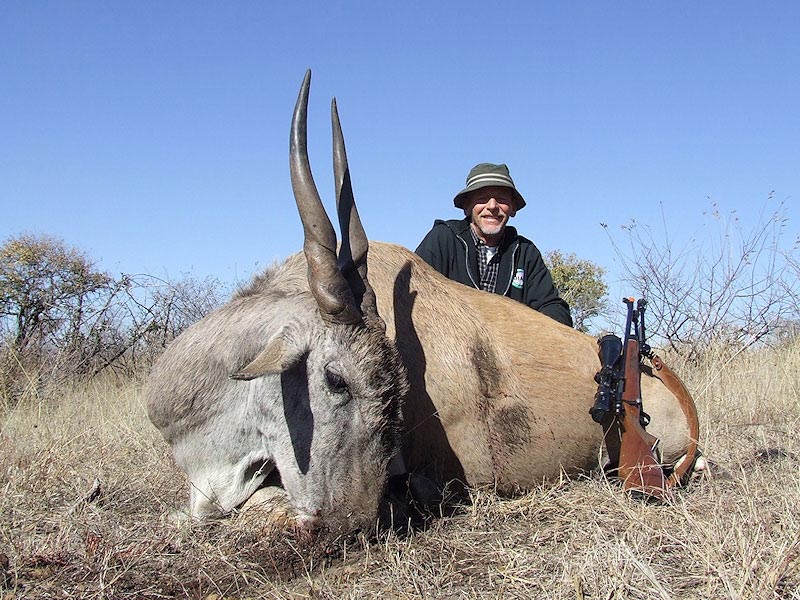SA company against British govt trophy hunting imports ban Bill

Emmanuel Koro
A South African hunting company, Rance Safaris has appealed to the British Government not to go ahead with its plans to introduce a trophy hunting imports ban Bill because it would harm African wildlife and the people.
In its submission to the UK Department for Environment, Food, and Rural Affairs, Rance Rural Development (Pty) Ltd said that its environmental conservation efforts will be negatively affected by any legislation against trophy hunting imports ban, from any country, worldwide.
Notably, it is not Rance Safaris only that will be negatively affected by the British Government’s proposed hunting trophy imports ban hunting Bill. Elsewhere, Southern African rural communities, NGOs, and governments have also protested the proposed Bill saying “it will cause harm” to African wildlife and people.
Before the Bill can be debated in parliament, the UK Department for Environment, Food and Rural Affairs’ recently invited stakeholders in the wildlife economy worldwide; to comment on the British Government’s proposed trophy hunting imports ban.
“There are many more companies whose conservation efforts will be similarly thwarted,” said Mr John Rance, Director of Rance Safaris, Rance Rural Development (Pty) Ltd, and Rance Timber that collectively employ 3 000 people in one of the poorest communities in South Africa’s Eastern Cape Province.
Because of their love of wildlife and passion for environmental conservation and their belief in sustainable use of natural products, the Rance Safaris, Rance Rural Development (Pty) Ltd, and Rance Timber shareholders invested in tracts of land which were previously commercially operated with domestic animals, primarily goats, sheep and cattle and converted them into wildlife ranching. They spent millions of South African Rands in this wildlife ranching venture.
Wildlife ranching is well developed in Southern Africa, including Namibia and Botswana, where private ownership of land occurs, unlike much of the rest of Africa, where most land is government or tribally owned.
This activity is commercially based and takes many forms. It ranges from intensive breeding of wildlife to extensive wildlife reserves such as operated by the Rance companies, to wildlife co-habiting with domestic farming and tourist game-viewing operations.
“All of this is underpinned by the value which hunting, particularly trophy hunting, gives to that wildlife,” said Mr Rance.
“Simply put, as happened in UK, Europe and the rest of the world, if wildlife has no commercial value, it will be eradicated and replaced with domesticated stock in the form of goats, cattle, and sheep,” said Mr Rance. “Unless wildlife is given a value above that of domestic stock, there is no way of preventing this, not even in wildlife sanctuaries like national parks, when the crush of humanity seeks lebensraum [the territory which a group, state, or nation believes is needed for its natural development] and the economic means to live.”
Mr Rance said that the evidence is everywhere in Africa (if not the rest of the world) that wildlife-living areas and populations are shrinking; yet populations of goats, sheep, and cattle are increasing or at least maintaining their levels.
“However, worse than this, habitats are being devastated where they are not suited to domestic animals, which includes vast areas of Africa,” he said.
“And yet, in Southern Africa, this trend has been reversed as the statistics of other submissions will have elaborated and proven. Our businesses were instrumental in this reversal. The means for this was provided by the income obtained from hunting, particularly trophy hunting. Without that, the land will revert to domestic farming.”
Mr Rance said that trophy hunting might be abhorred by the people who oppose it, that is no reason to ban it if it contributes to the maintenance of biological diversity, particularly wildlife populations.
“In fact, this should be the reason to promote it,” said Mr Rance.
“In our business, trophy hunting is the highest paying sector of hunting and without it, our business will close, wildlife will be eliminated, and land will revert to domestic farming from which it was reclaimed.
“Contrary to propaganda, nothing from trophy hunting is wasted and the benefits to poorer people, of whom there are many in Africa, are considerable.
“Apart from the employment created by hunting generally, international trophy hunters leave the carcasses in the hands of the hunting outfitters. Because they are subsidised by trophy hunting, these are sold to abattoirs and butcheries at a much lower price than conventional forms of meat from domestic animals. That allows people to obtain meat protein who would otherwise not be able to afford it.
“The taxidermy industry, which is a spin-off of trophy hunting, is considerable, providing employment for many people and valuable foreign exchange from exports, all of this on a sustainable basis.
“There are those who claim that trophy hunting depletes the gene pool. Doubtless, there will be evidence of this where operators, fearing the collapse of the hunting industry, or the loss of wildlife land through government intervention, or through ignorance, adopt a short-term policy to trophy selection. The irony is that this will increase if there is a prohibition or reduction of trophy hunting whilst landowners harvest the last remaining wild animals before reverting to domestic farming.
“However, the majority, like ourselves who believe in long-term sustainability, know that maintaining trophy quality is the key to the survival of our businesses. Therefore, we jealously guard the genetic quality of our animals and seek natural ways to improve this.
“In most wildlife areas, large predators which are a danger to human life, have been eliminated. When that occurs, man has to take the place of the natural predator by hunting and through the application of science and logic to maintain natural balances.
“Therefore, it is vital that man intervenes through the application of logic and science to ensure animal populations are maintained at levels which the habitat can support without degrading.”
Mr Rance said hunting has a comparatively low impact on the land than wildlife-viewing tourism which more vehicles and “materialistic consumption which is environmentally degrading and often unsustainable in the long-term.”
“By contrast, one trophy hunter, in one vehicle and hunting mostly on foot provides a far lesser human-environmental footprint than wildlife viewing,” he said. “Where one lodge provides the infrastructure for hunting, ten would need to be built for game-viewing. Roads would need to be constructed to facilitate game-viewing in environmentally sensitive areas which are accessed by foot with hunting. Where one vehicle suffices for hunting, twenty or more would be required for game viewing”
In short, to adopt game-viewing as a form of income to sustain our wildlife reserves would be economically impossible and would defeat the objectives of the shareholders in creating the wildlife areas.”
Mr Rance said that while the British Government might find it easier to win political support by avoiding going against the emotional anti-hunting animal rights groups’ demand, it shouldn’t exclusively focus on local political gains.
“I believe and trust that the UK political system can rise above political expediency in the interests of and in line with the worldwide drive for environmental sustainability and we appeal to you not to legislate this proposed ban on hunting trophy imports,” said Mr Rance who has asked the British Government to send a fact-finding mission to South Africa that he would host at his wildlife reserve.
*Emmanuel Koro is a Johannesburg-based international award-winning independent environmental journalist who writes and has written extensively on environment and development issues in Africa.










Comments